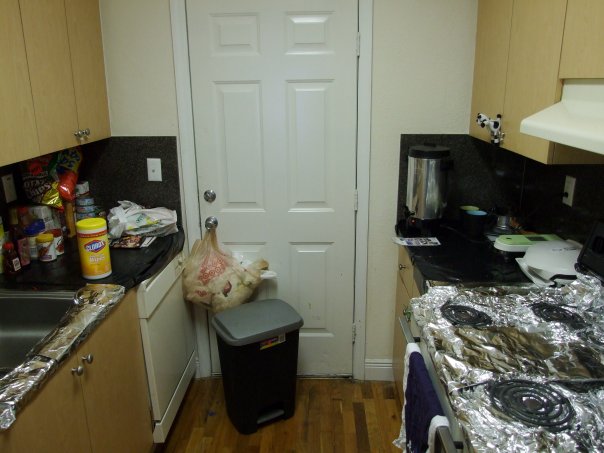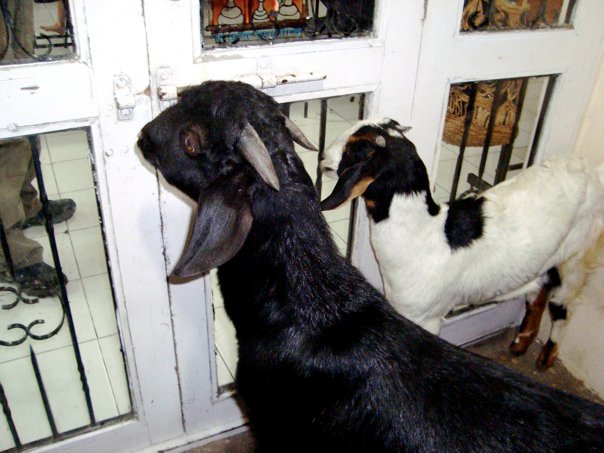This Shabbos is also Rosh Chodesh Nissan, which is pretty exciting. Nissan is the month of miracles, which is clearly true because it’s the month when I was born (haha!). It is kind of daunting to think that we are ushering in, officially, the month that claims Pesach (Passover) as its own. That means Pesach really is just around the corner.

I always seem to leave Pesach cleaning for the last minute... This is a reminder of Pesach cleaning in bygone years... Eek! The nightmares!!!!
I don’t know about you, but I haven’t even started thinking about preparing for Pesach yet. Of course, I have a good excuse – I still don’t know where I will be for Pesach this year. Will we be in a hotel? A friend’s house? Or will we actually be moving into our own place in time for Pesach? There really is no way for me to tell. In my world, Pesach, just two weeks away, seems to be way too far in advance to start planning for.
As much as I’ve travelled, my Pesach celebrations always seem to be focused on family and community. No matter where I roam, I always seem to come back home. My last two Pesachim were spent with Rabbi Ben’s family. The previous few years were spent with my community in Miami or, before that, in Virginia. Growing up, Pesach always meant a quick seder (relatively speaking!) with photocopied but beloved haggadot, matzah ball soup, a competitive hunt for the afikomen (I don’t think I ever found it, not once!), and Elijah’s cup, which was always miraculously empty by the end of the meal.
As I became more religious, I began to experience Pesach the orthodox way (and eventually even the Chassidic way), which meant that gone were our unorthodox photocopied haggadot (although I still have one I save), gone is the matzah ball soup (no more gebrockts for me), gone are the days when I was young enough to hunt for the afikomen, and nobody at the seders I attend would ever dare to sip from Elijah’s cup! It’s a big change, as have been many of the changes in my life.
Yet, no matter whose table I sit at as I partake of the Pesach meal, some things stay the same. The five questions, for instance. Five? Yes, for me there are always five. The four you know of, plus one extra one: “You’re a vegetarian. What are you going to do when Moshiach comes and you have to eat from the Pesach offering? Are you going to eat it? You know you have to, right?”
Appropriately, this week’s parsha deals pretty much exclusively with animal sacrifices. This is the kind of parsha that requires me to answer again and again those questions about animal sacrifices that make me, to be honest, just a little bit squeamish. But it’s good practice for me because it will invariably come up again in two weeks’ time at the Pesach seder.
There are a number of different ways of understanding animal sacrifice. In my opinion, the most revealing hint to understanding them lies in one simple phrase: “When a person offers a sacrifice from within you…” “From within you,” meaning that the sacrifice should be something deep and tragic. That animal is going up on the altar in your stead. You should look at that animal and feel the tragedy of its death as if it were your own.
Back when animal sacrifice was practiced, this was easy enough. Animals were extremely valuable at that time. They were your source of food and livelihood. Your bull or your ox would have pulled your plough or your cart. Your sheep gave you milk and wool, your goats gave you milk as well as meat. To lose one of your animals was a major loss and you felt it hit you hard. Not only on a material level, but because you raised your animals and cared for them, spending time with them every single day, often all day long. You weren’t just losing a car, you were losing a friend.

The Chabad in Pune, India really values their two goats - they raised them from kids and they are the source of cholov yisroel milk for the family. These two guys even seem to think they're part of the family! So for the Chabad, losing one of these goats would be a REAL sacrifice - unlike for most of us, who would have to go out and buy a goat to sacrifice it.
For most people today, animal sacrifice just wouldn’t mean the same thing. Maybe the Chabad rabbi in Pune, India, whose two goats give him cholov yisroel milk, would feel their loss. But most of us would have to go out and buy an animal just to sacrifice it. There wouldn’t be the bond formed of raising it from a baby. The only people who could possibly fathom the depth of loss of an animal today in the first world is the blind person imagining having to bring their guide dog to be slaughtered.
There are lots of commentaries, which I’ve previously addressed on the blog, that argue that in the times of Moshiach (the messiah), there will be no more animal sacrifices. In fact, even the Rambam has stated that he believed that if Moshiach arrived in his times, there would at least be no individual sacrifices. The truth is, if we look at the spirit of the sacrifices, we would be putting our iPhones on the altar instead of pigeons, our fancy computers in place of goats, and our expensive cars in place of bulls and oxen.
So to answer the question, would I eat from a sacrifice made in the Third Temple? I honestly couldn’t answer that. We don’t know how things are going to change once Moshiach comes. Will there even be animal sacrifices? If I had to eat an animal sacrifice at this moment, I would find it repugnant, but my mentality would probably be different given that we will all have ruach hakodesh, divine insight, once Moshiach comes.
So instead of thinking about what might come to be, or trying to imagine life once the Third Temple is given to us, we should focus on the meaning behind the sacrifices. We were giving up something precious to us to atone for our own sins. Maybe we can apply this in our own lives by giving up the latest high tech upgrade and instead donating our money to tzedaka – to atone for all those times we pause in our davening to look at our phones. This is the best and most meaningful pre-Pesach preparation we can do. We don’t just have to clean the “chometz” from our kitchens – we also have to clean it from our souls.
Shabbat shalom!






No Responses to “Parshas Vayikra: The Inner Sacrifice”
Trackbacks/Pingbacks